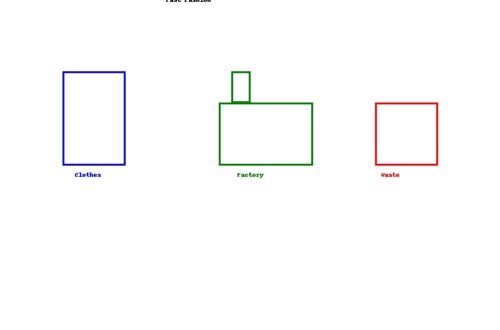Cider is a clothing brand that has become very popular on TikTok and Instagram. It offers cheap, trendy clothes that many young people love. Because of this, people often compare Cider to Shein.
But there is a big question: Is Cider a fast fashion brand?
Most experts say yes. Cider itself says it is different and calls its style “smart fashion.” Let’s look at the facts to understand both sides.
What Is Fast Fashion?
Fast fashion means:
-
Clothes made very quickly to copy new trends
-
Very cheap prices to make people buy more
-
New products released all the time
-
Factories and workers hidden from view (low transparency)
-
Heavy use of synthetic fabrics like polyester
-
Large amounts of waste and harm to the planet
Ultra fast fashion (like Shein) goes even faster, with thousands of new styles every day.
What Cider Says About Itself
Cider does not call itself fast fashion. Instead, it uses the term “smart fashion.”
Here is what the brand claims:
-
On-demand production: Clothes are made in small batches after people show interest.
-
Drop model: New collections are launched around popular “aesthetics” like Y2K, cottagecore, or coquette.
-
Low cost: Dresses under $20, tops under $10.
-
Inclusive sizing: Some pieces go up to 4XL.
-
Global reach: Popular across many countries, with big social media presence.
This sounds better than traditional fast fashion, but is it really?
Why Many Call Cider Fast Fashion
1. Constant New Drops
-
Cider releases new styles often.
-
Many drops are based on TikTok or Instagram trends.
-
This encourages people to buy clothes they may not wear for long.
2. Very Cheap Prices
-
Low prices suggest costs are cut somewhere.
-
Reviews say quality is mixed: some pieces last, others fall apart quickly.
3. Environmental Concerns
-
Most clothes are made from polyester and other synthetics.
-
These fabrics shed microplastics when washed.
-
Watchdog group Good On You gives Cider the lowest rating (“We Avoid”).
4. Supply Chain Transparency
-
Only a few factories are named.
-
Audits are mentioned, but details are vague.
-
No evidence that workers get living wages.
5. Ethical Issues
-
Cider has been accused of copying designs from small creators.
-
It has not shown strong rules about fair pay or worker rights.
What Cider Is Doing to Look Different
Cider does make some claims about sustainability:
-
On-demand production: Says it avoids overproduction.
-
Take-back program: Lets customers return clothes for recycling.
-
Recycled packaging: Uses “eco” packaging (though some critics say it may not really biodegrade).
-
Audits: Mentions outside checks of factories.
-
Size inclusivity: Offers a wider range of sizes.
Problems with these efforts:
-
Programs are small and not fully proven.
-
No clear data on how much waste is saved.
-
No public targets for climate or wages.
-
Risk of “greenwashing” (looking eco-friendly without big impact).
Comparing Cider With Shein and Zara
| Feature | Cider | Shein | Zara/H&M |
|---|---|---|---|
| Speed of new clothes | Frequent drops | Thousands daily | Seasonal + trend-led |
| Price range | Very low ($10–$20) | Ultra-low (often <$10) | Moderate ($30–$60) |
| Transparency | Only a few factories listed | Very secretive | Wider factory lists |
| Materials | Mostly synthetics | Mostly synthetics | Mix + some recycled |
| Sustainability reports | Very limited | None | Public yearly reports |
| Scale | Medium, growing | Huge, global | Huge, global |
| Reputation | Says “smart fashion,” critics say fast fashion | Ultra fast fashion | Legacy fast fashion |
What Experts Say
-
Good On You: Very poor for environment; avoid brand.
-
Eco-Stylist: Calls Cider fast fashion; questions packaging and wages.
-
Ecothes: 0/5 rating; mentions design copying.
-
Green Matters & GreenHive: Say it is clearly fast fashion.
-
Sustainable Jungle: Compares Cider to Shein.
Conclusion from experts: Almost all agree that Cider is fast fashion.
Pros and Cons for Shoppers
Pros
-
Very affordable prices
-
Trendy styles that match social media looks
-
Many choices and aesthetics
-
Offers larger sizes than some brands
Cons
-
Quality is not consistent
-
High environmental impact from synthetics
-
Opaque supply chain and unknown worker conditions
-
Promotes overconsumption (buying too often)
Final Verdict
So, is Cider fast fashion?
Yes.
Even though the brand talks about “smart fashion,” most signs show it fits the fast fashion model:
-
Low-cost clothes made quickly
-
Many trend-based drops
-
Lack of clear supply chain information
-
Strong reliance on polyester and other synthetics
Cider is not as extreme as Shein, but it is still a fast fashion brand.
Tips for Consumers
If you like Cider but also care about the planet, here are some ideas:
-
Buy less: Pick only clothes you know you will wear often.
-
Choose better fabrics: Go for cotton, linen, or recycled blends when possible.
-
Take care of clothes:
-
Wash gently and in cold water
-
Repair small holes or tears
-
Donate or recycle when finished
-
-
Support better brands: Look for companies rated “Good” or “Great” by ethical fashion guides.
-
Ask for change: Use reviews or social media to call for more transparency and fair wages.
Conclusion
Cider has grown fast because it gives shoppers what they want: cheap, trendy clothes in fun styles. But low cost comes with hidden costs—on the environment, on workers, and on fashion culture itself.
Until Cider shows stronger proof of sustainability and fairness, it remains a fast fashion brand. As buyers, we can still enjoy fashion, but in a mindful way: buy less, choose better, and demand more from brands.




